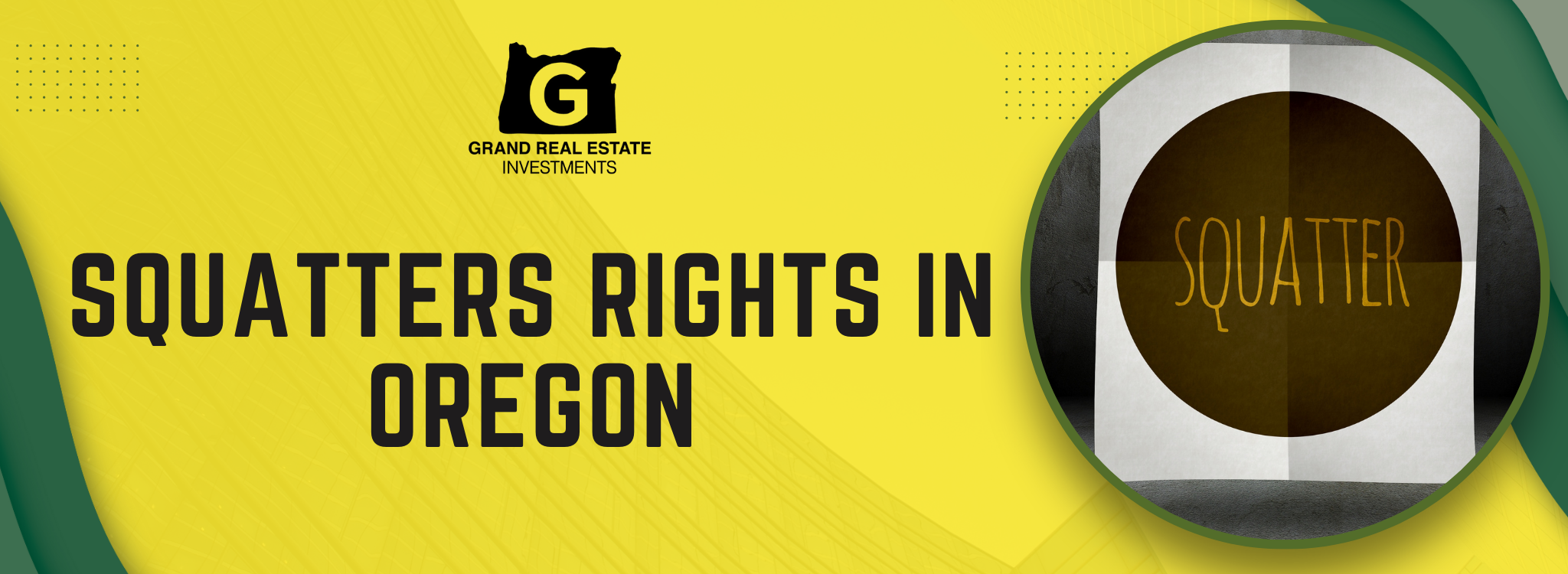
Legal Implications of Squatting in Oregon
What Are the Possible Legal Consequences for Squatters?
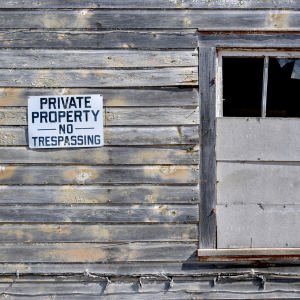
Most people know that Oregon has very strict property laws, making squatting illegal and an offender can face serious legal consequences. Squatters face eviction, and the unlawful occupation of property is classified as trespassing, a crime in Oregon. In such situations, the police are often involved and routinely serve an eviction notice once a property holder registers a complaint. To claim adverse possession, squatters have to prove that they have exclusively used the property for a given duration. Due to this complicated and rarely successful process, squatters find themselves being dragged into legal battles.
Role of Law Enforcement in Handling Squatters
Oregon police have two main responsibilities to the public: maintaining public order and managing illegal land occupation. Property owners have the right to lodge an affidavit with the police regarding squatters, which can enable the police to intervene. Officers have the authority to issue eviction notices, and in some cases, squatters are forcibly removed in the eviction process. Legal enforcement and the law can cooperate, and property laws can be upheld while providing a resolution to issues that arise.
Are There Legal Defenses Available for Squatters?

In the state of Oregon, squatters do not have many legal options available to them. Adverse possession is a possible defense; however, it would require proof of actual use of the property for at least a set period of time. Squatters may attempt to claim some rights, but that typically requires extensive proof and legal assistance. It is crucial to obtain accurate information about the workings of civil courts and how Oregon law approaches adverse possession. Obtaining appropriate legal advice is vital for the effective resolution of conflicts.
Legal information provided by Grand House Buyers and affiliates do not claim to be professional legal advice. Such information is meant to be of a general nature and is not a substitute for a consultation with expert attorney.
How Does Adverse Possession Differ From Trespassing?
Conditions under Oregon Law that Define Trespassing
Every situation has its boundaries. In Oregon, trespassing has its own designated borders and is identified as a crime. In Oregon, trespassing is knowingly entering or remaining on someone’s property without permission. Civil trespass occurs when someone applies or intends to use certain areas beyond their scope without authority to do so, and this can bring about civil actions. Having knowledge of these boundaries can enable property holders and would-be offenders to remain in conflict under Oregon real estate law.
What is the Process to Convert Trespassing into a Claim of Adverse Possession?
Claims of adverse possession must start from certain trespassing parameters. To begin, a squatter must demonstrate obvious and habitual use of the property. In this case of property possession, a squatter must act as a true occupier and remain for a period of a decade as described by the law in Oregon. For this case of possession to qualify, it must be exclusive, uninterrupted, and in the face of the actual property owner’s wishes. Fulfilling these conditions over time allows the trespasser to attain legal title.
How Do Property Owners Prove Trespassing to Prevent Adverse Possession?
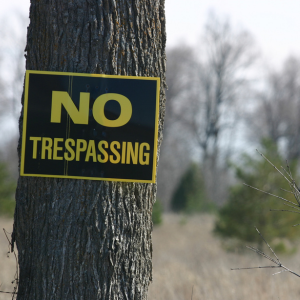
Claiming trespassing is critical to weakening an adverse possession claim. Property owners should follow the steps outlined below:
- Gather Evidence: Unauthorized utilization of your property constitutes trespassing. Take photographs and videos and maintain logs as evidence.
- Eviction Process: To get rid of undesired tenants, follow Oregon’s eviction procedures to comply with state laws.
- Property Boundary Issues: Conduct periodic property surveys and rectify boundary disputes, if any. These surveys prevent boundary disputes and safeguard property rights.
- Monitor Land Use Rights: Oregon’s land use laws should be tracked actively to deal with any encroachments and changes swiftly.
With the above precautions, property owners can take safeguard steps against adverse possession and loss of property rights. It may be beneficial to consult professionals on platforms like Grand House Buyers.
Legal Disclaimer
This material is intended solely for informational use. For tailored legal advice, reach out to a legal expert.
What Actions Can Property Owners Take to Protect Their Properties?
Are There Preventative Measures Against Squatting?
To help prevent squatters from occupying their properties, property owners can implement the following measures:
- Regular Inspections: Regular inspections should be performed to ensure that the property is occupied and in good condition.
- Security Measures: Install security systems, such as alarms and surveillance cameras.
- Legal Preparedness: Understand local eviction procedures and adverse possession laws to resolve problems quickly.
- Maintain Presence: Regular visits or hiring a property management company can help give the impression of occupancy.
- Maintenance of Abandoned Property: Ensure that unoccupied properties are regularly maintained.
These measures can avert claims to property rights and illegal squatters claiming squatter’s rights.
How Can Regular Property Inspections Safeguard Against Squatters?
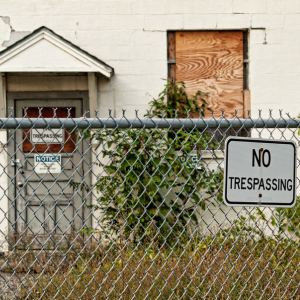
Investment protection requires regular property inspections.
- Early Detection: Unauthorized occupancy should be minimal to avoid squatter claims, and occupancy should be detected quickly.
- Property Management Inspection Agreements: Regular inspections must be done by reliable property management companies.
- Cleanliness: Well-maintained and landscaped areas makes the property look occupied to deter squatters.
- Documentation: Maintain records of inspections and maintenance work as proof of occupancy.
By adopting these measures, property owners and landlords can effectively defend themselves from potential squatters.
The Importance of Maintaining Property Boundaries Clearly
Clear property boundaries are important for avoiding conflicts and protecting your interests:
- Conduct Surveys: Regular property surveys are necessary to maintain boundary line accuracy.
- Title Search: Performing a title search verifies ownership and flags potential encroachments, ensuring unimpeded ownership.
- Property Line Agreement: Draft agreements with neighbors to define and resolve boundary line disputes to prevent conflicts.
- Legal Recourse:If the conflicts arise, take immediate action to defend your property law rights.
By preserving these defined boundaries, property owners mitigate the risks of encroachment and drawn-out legal conflicts. Periodically, it is important to assess and improve boundary surveys to capture all modifications.
Resolving Property Disputes Arising from Squatting
How Are Disputes Over Squatters’ Rights Typically Resolved?
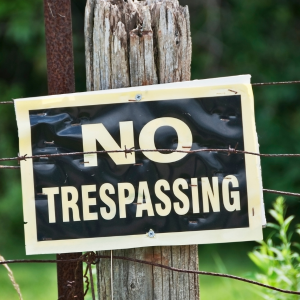
A state like Oregon will require mediation when dealing with disputes over squatters’ rights, and this often revolves around adverse possession. Legally, squatters have rights to the land if they have resided on it openly and continuously for a lengthy duration. In as much as squatters may have rights, the land has an owner who has to actively deal with disputes that arise, and this may include a lengthy eviction process that will need a lawyer to deal with.
Any homeowner looking to sue for adverse possession should familiarize themselves with the local statutes and regulations. Homeowners who have adverse possession and want to sue have to ensure that they understand the local laws and guidelines on adverse possession, as well as obtain the required evidence for their claims. Enlisting the services of a legal expert will save a lot of time and ensure that the complexities of agreements and legal systems have been properly dealt with any relevant evidence. To properly navigate the intricacies of property disputes and adhere to legal processes, it is advisable to involve an experienced attorney.
Role of Mediation and Legal Aid in Property Disputes
Disputes involving land as property tend to drag many to lawsuits as an option and mediation as a solution. Mediation will often require someone who helps to remain neutral while ensuring that communication happens so that everyone leaves with a resolution that they both desired. Such an approach saves people time and money over going to court.
People in Oregon who are involved in a property dispute but can’t afford a private lawyer can apply for legal aid. Some people may need help figuring out their property rights, but groups like Oregon Legal Aid are there to help. The best way to safeguard your legal position and guarantee effective representation is to consult an Oregon property rights attorney.
When Should Property Owners Seek Professional Legal Assistance?

As soon as a property owner becomes aware of a squatting problem, they should consult a professional lawyer. The involvement of legal counsel at an early stage can mitigate escalating disputes and facilitate the management of the eviction process. The lawyer will represent the owner’s best interests and provide guidance on the necessary legal procedures.
Talking to an attorney from the Oregon Bar Association can be helpful if a formal eviction is needed because they know the laws and procedures in the state. Swift legal action by seasoned experts can safeguard property rights and facilitate a more amicable resolution.
Disclaimer
This material is provided for informational purposes only and is not meant to be taken as legal advice. Advice from an attorney should be sought for matters of specific law.
Please contact Grand House Buyers anytime for further information about purchasing or selling real estate.
How Does Oregon Respond to Unauthorized Occupancy Claims?
What Agencies Assist in Handling Cases of Unauthorized Occupancy?
Several agencies in Oregon assist with managing unauthorized occupancy. Law enforcement is critical in resolving complaints and ensuring community safety. They collaborate with legal counsel to guide evictions while maintaining respect for both property owners and unauthorized occupants.
Oregon’s housing rights organizations provide valuable support for property owners facing unauthorized occupancy. They offer legal advice to help navigate evictions and resolve disputes efficiently. These organizations also inform property owners about their legal options and proper handling procedures.
Involvement of Local Authorities in Addressing Complaints
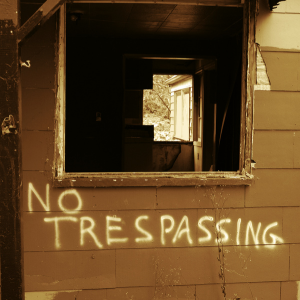
Oregon’s local governments are indispensable in addressing unapproved occupancy complaints. Usually, the first point of contact is law enforcement, which helps Oregon’s legal system enable eviction. They settle property conflicts using municipal agencies and attorneys.
Local authorities evaluate the matter after a complaint comes to decide what to do. By acting quickly, local authorities ensure complaints are handled promptly and according to state laws, providing a clear path for affected property owners.
How Do Community Programs Contribute to Mitigating Squatting Issues?
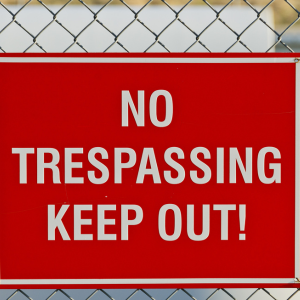
Community programs in Oregon are critical for preventing and controlling squatting. These initiatives are centered on prevention and educating property owners and potential squatters. They intend to raise awareness about squatters’ rights and legal responsibilities in order to reduce the risk of unauthorized occupancy.
Legal aid is frequently provided through programs to assist individuals in understanding their rights and responsibilities. These programs promote lawful behavior and property protection by encouraging community cooperation. Residents are empowered through community efforts to protect their neighborhoods and avoid legal disputes.
Contact local housing organizations or law enforcement agencies for more information on Oregon’s unauthorized occupancy or community programs. Grand House Buyers assists property owners by providing insights and resources to manage these challenges effectively.
This information applies to Oregon and its cities like Portland, Salem, Eugene, and more. For help or questions, call us at (541) 214-2163. You can also visit our website at Grand House Buyers for more details.
FAQs:
What are the requirements for claiming adverse possession in Oregon?
To claim adverse possession in Oregon, you must live on the property openly and continuously for 10 years without the legal owner’s permission. This means your presence must be clear and noticeable to others. You also need to hold uninterrupted possession throughout the 10 years.
How does the civil court process work to resolve property disputes involving squatters?
The civil court process includes filing a lawsuit to get a quiet title action, which legally acknowledges your ownership rights. Oregon’s landlord-tenant law addresses these issues. If dealing with a squatter, you must follow the legal procedures, which may involve eviction.
Can someone with disabilities affect the adverse possession timeline in Oregon?
Yes, if the legal owner has disabilities or is legally incompetent, the statute of limitations for adverse possession claims might be extended. This extension alters the time needed to claim ownership through adverse possession.
How do tenant rights and adverse possession laws interact in Oregon?
Tenant rights and adverse possession laws in Oregon are distinct but can overlap. Tenant rights protect those with a rental agreement, while adverse possession involves occupying property without a lease. Knowing both sets of laws is essential for handling property disputes.
Are there risks involved in removing a squatter from a property in Oregon?
Yes, attempting to evict a squatter is illegal in Oregon and could result in legal issues. It is crucial to use legal methods to reduce risks and comply with Oregon real estate laws.
What role does a property survey play in ownership disputes in Oregon?
A property survey is key to settling ownership disputes as it clarifies boundary lines and establishes legal ownership. Surveys are often used alongside quiet title actions to resolve property lines or usage rights conflicts.
How can one protect their property from illegal squatting in Oregon?
Avoid leaving your property neglected or vacant for long periods to prevent illegal squatting. Regular upkeep, proper signs, and secured access points can deter squatters. Also, stay informed about local property records and laws.
What is the significance of title insurance in property transactions in Oregon?
Title insurance is crucial in Oregon real estate deals because it protects buyers from potential ownership disputes. It ensures that any claims or liens on the property are addressed before purchase, offering peace of mind.
Key Insights
- In Oregon, to claim “adverse possession,” you must show 10 years of continuous occupancy under the “statutory period” rule, demonstrating exclusive and notorious possession.
- Handling “Oregon real estate disputes” involves knowing “landlord-tenant law in Oregon,” especially regarding possession rights and rental disputes.
- To resolve an adverse claim in Oregon, you might need a “quiet title action in Oregon,” particularly when dealing with unrecorded deeds or conflicting property records.
- “Notorious possession” is crucial for adverse possession claims, where the occupant’s use of the property must be obvious to others.
- When facing “property survey issues” in Oregon, getting “title insurance Oregon” is crucial to safeguard ownership rights against unexpected claims.
- Oregon property deed laws outline the rules for transferring property titles, affecting legal ownership and potential “illegal squatting in Oregon” defenses.
- If adverse possession claims arise, consulting with a good “property law firm in Oregon” can help navigate complex “Oregon common law” procedures.
- Engaging in a “quiet title action in Oregon” is often necessary to legally establish ownership and settle disputes over continuous possession or occupancy.
- Understanding “self-help eviction Oregon” rules is essential for landlords to deal with unauthorized occupants without breaking the law.
- Experts advise reviewing “Oregon property records” to manage disputes over “land use rights Oregon” and ensure compliance with local laws.


